Why Do You Want to be a Nurse Practitioner? Carson-Newman MSN-FNP Students Answer
by Carson-Newman … on May 22, 2020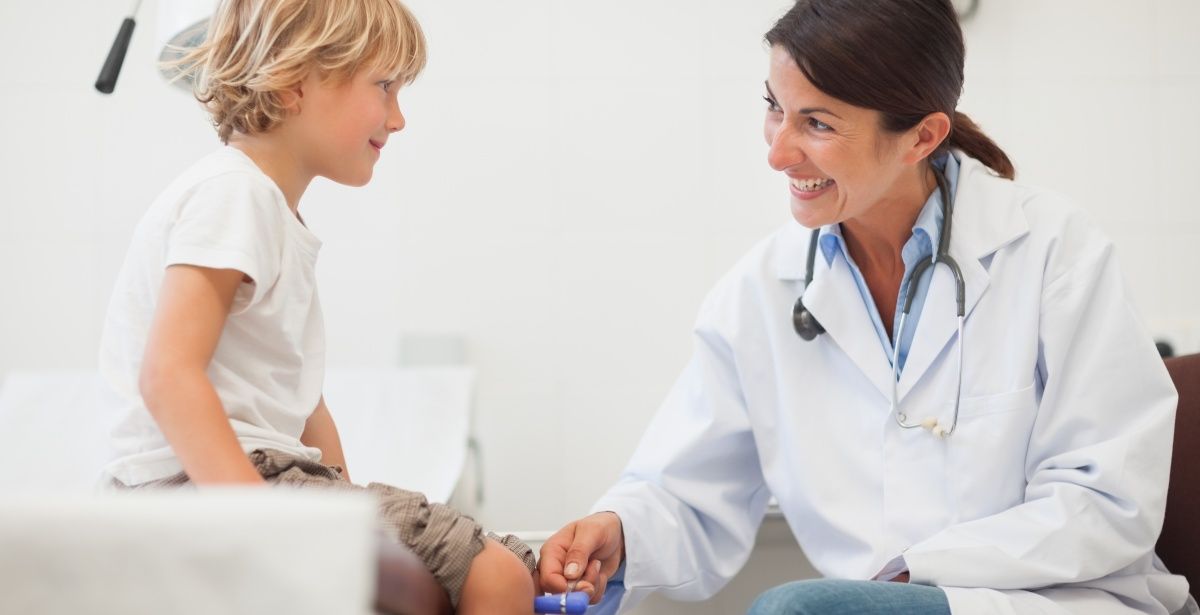
Learn more about Carson-Newman's online family nurse practitioner program.
"Why do you want to be a nurse practitioner?" is a question many nurses hear and consider before taking the next step in their career. Each answer is personal and an important part of your professional journey.
At Carson-Newman University, we've interviewed six students in our online MSN-Family Nurse Practitioner (FNP) program. We asked, "why do you want to be a nurse practitioner?" and our students' responses are below. If you aspire to have greater influence and autonomy in your nursing practice as an FNP, read on to gain perspective as you consider your own path.
Earn Your MSN-FNP Part-Time For Less than $30k
Lauren Crowe: Why do you want to be a nurse practitioner?
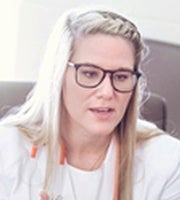
When did you decide that you wanted to be a nurse practitioner?
I always knew I wanted to continue education [as a nurse]. Nursing is a constant field of learning, and I knew that I wanted to pursue a higher level. Nurse practitioner appealed to me because I wanted to care for my patients on a different level and give the whole perspective, already having the experience as a nurse, and to give provider care as well.
What's your favorite part about being a nurse?
My patients are my favorite part of being a nurse. I enjoy going to work every day to get to care for and love people spiritually, emotionally, and physically. So that's my favorite part.
What kind of impact would you like to have on the nursing profession?
I just want my patients to feel loved, heard, and cared about. I see a lot in the world that we have—we expect patients to come to us when we should go to them. Medical missions have always been a part of my heart, too, so I hope to be able to help in that aspect as well.
Mary Catherine Hefner: Why do you want to be a nurse practitioner?
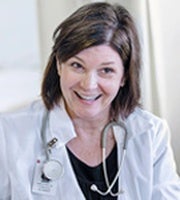
Why did you decide you wanted to become a nurse practitioner?
It's been my goal for 20 years to be a nurse practitioner, and life happens. It just so happened that life fell into place and it worked out through Carson-Newman for me to join their first cohort of the online [FNP] program.
What's your favorite part about being a nurse?
My favorite part about being a nurse is helping others improve their quality of life and in doing that, I try to leave patients in a better frame of mind or a better state of health than I find them in.
What kind of impact would you like to have on the nursing profession?
I certainly hope [with] my little piece of the puzzle that I can contribute to the big picture and will be impactful—not only on the side of patient care but also in representing family nurse practitioners positively... so we can practice at the upper end of our license and be a voice for patients and the profession.
"I certainly hope to be... a voice for patients and the profession."
Miranda Kerley: Why do you want to be a nurse practitioner?
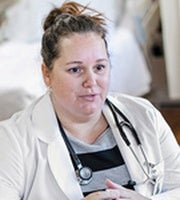
Why did you decide you wanted to become a nurse practitioner?
I actually started a program, but due to clinical placement, I stopped because I couldn't find anywhere to do clinicals. Then my husband pushed me to get my master's because he thought I'd be good at it. I agreed and... that was probably four years ago.
What's your favorite part about being a nurse?
I work in the ER, so I get to deal with anything and everything. Every patient's different. Every experience is different. I just love the variety of what I get to deal with every day I go to work. [It's] never the same.
What attracted you to the program at Carson-Newman and how did you know it was a good fit for you?
One of the big attractions was an advertisement for clinical placement. The area that I'm from -- Charleston, South Carolina -- we have probably five to seven different nursing programs, so there are students everywhere.
We have the Medical University also, so we're just jam-packed. Finding clinical placements is super hard. You could wait six months before you get in somewhere, so it really slows down your progress. When I saw Carson-Newman was willing to find placement for me, I jumped on board very quickly.
"Finding clinical placements is super hard… When I saw Carson-Newman was willing to find placement for me, I jumped on board very quickly."
Amanda Lane: Why do you want to be a nurse practitioner?
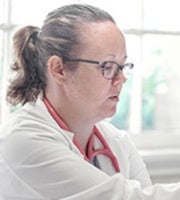
Why did you decide you wanted to become a nurse practitioner?
I have my master's already in Nursing Administration, but I want to do more with patient care. I work in a free clinic one day a week in my hometown and I really enjoy providing that care. I want to do what nurse practitioners can [do]—provide mid-level care.
What's your favorite part about being a nurse?
I love interacting with my patients and establishing a rapport with them.
What attracted you to the program at Carson-Newman and how did you know it was a good fit for you?
It's close [to me]. I knew if there were any issues that I'd be only an hour and a half away.
I like the fact that it's online and only one class a semester, so it's doable with being able to be focused on my family and work. Family is the most important thing to me, so it's important to still be able to go to their games and concerts.
Nichole Luckshis: Why do you want to be a nurse practitioner?

Why did you decide you wanted to become a nurse practitioner?
I have wanted to be a nurse practitioner ever since I started nursing. Early on, I knew I'd love to teach… and I'd love to educate patients. In our field, I feel like education kind of lacks, especially with health care with patients—they're not given the education that they need [for] medicines or why they have disease processes.
I would love to be that person, especially as a nurse practitioner—to not only provide care and manage that care for them but to be able to educate and tell them why.
What is your favorite part about being a nurse?
There are so many parts that I love about being a nurse. Generally, [it's] the relationships we gather with patients. You get to be there at special parts of their life—whether they're sick, whether they're happy. I'm an emergency room nurse, so it's just being there when patients are sick. You can comfort family members, you can comfort the patients, and just take care of them.
What kind of impact would you like to have on the nursing profession?
I'm huge on education—I love to teach other nurses and I love to educate patients. I want to, first, just provide good care, and second, just be able to make an impact with patients on the education of disease processes and everything that they're going through.
Rhonda McAnally: Why do you want to be a nurse practitioner?
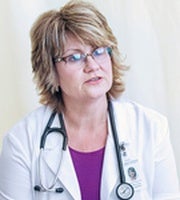
When did you decide you wanted to be a nurse practitioner?
I've been away from bedside nursing for about 10 years and am in more of an education and administrator role at a hospital. The reason I wanted to become a nurse practitioner is [that] I really miss the patient interaction... I have been looking for a flexible program where I could fulfill my lifelong dream of becoming a nurse practitioner.
What's your favorite part about being a nurse?
My favorite part of being a nurse is the patient interaction and the variety of patients that you see [each] day. Every day is a new challenge, a new expectation, a potential diagnosis or something to learn. Being a nurse is just continually learning and trying to improve your skill set and knowledge.
What kind of impact would you like to have on the nursing profession?
An impact that I want to make...is to show that individuals can get exceptional care and holistic care. I also [want to] be an adjunct to the physicians, or surgeons, in providing... more of a holistic approach to nursing. Also, to [be a mentor to] other nurses to fulfill their dreams— it's never too late to learn something new and acquire knowledge to help another individual. I believe that some of that is missing with the healthcare profession today.
People do not need to be treated like a number. They need to be treated with compassion; they need to be treated with respect.
I feel like the nurse practitioner role [expands] to where you're spending more time with your patients and truly educating them about their conditions.
"People do not need to be treated like a number. They need to be treated with compassion; they need to be treated with respect."

It's Your Turn: Why do you want to be a nurse practitioner?
There isn't just one answer to the question "Why do you want to be a nurse practitioner?" Still, here are several reasons to consider becoming one:
- Employment of nurse practitioners is expected to grow 28% through 2028, almost six times the average growth rate of all other occupations.
- FNPs can work in a variety of settings including hospitals, schools, outpatient clinics, and community health centers.
- In some states, FNPs can practice independently and open their own practice.
- FNPs can also pursue subspecialties including medical-surgical, cardiac, endocrine/diabetes, and more.
- In many states, nurse practitioners have what's referred to as "full practice authority", meaning they do not have to work under the supervision of a doctor and can provide complete patient care. This includes full exams, prescribing medicine, and more.
- The average annual income for FNPs is $110,030, substantially higher than RN positions. Even though pay varies by state, even in the lowest paying states, FNPs make $40,000 more than the national average for all other occupations.
It's no wonder that U.S. News & World Report ranks nurse practitioner as #4 among "Best Healthcare Jobs" (one place ahead of physician) and among the top seven for "100 Best Jobs."
Learn more about the benefits of becoming a nurse practitioner and broaden your impact in healthcare as a nurse practitioner.
Advance your nursing career with Carson-Newman's online MSN-FNP program or online post-master's FNP Certificate program.
